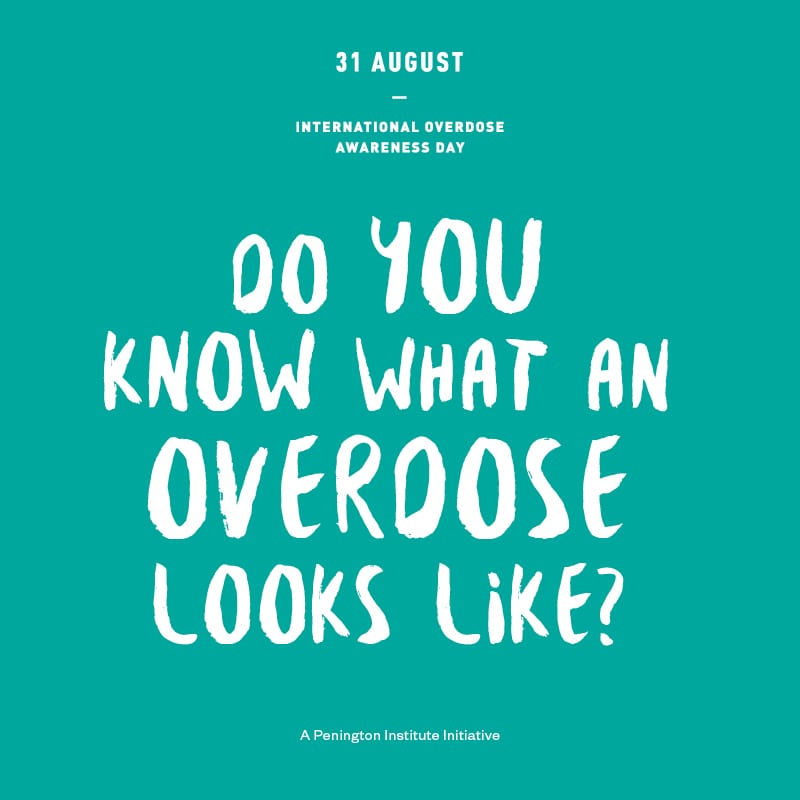When many people think of overdoses, they imagine what TV and movies have taught us: that an overdose most likely involves illegal drugs and takes place in desperate conditions. While overdoses can involve street drugs laced with hazardous chemicals, many are caused by prescription medication and can occur anywhere, from home to the workplace to social settings.
In fact, research shows that overdose deaths are increasing. Data from the Centers for Disease Control showed a more than 9% increase in the national fatal overdose rate between 2016 and 2017, with opioid drugs the leading contributor to overdose deaths.
That’s why the global addiction recovery community recognizes August 31 as International Overdose Awareness Day, in an effort to bring public attention to this challenge. You can recognize loved ones who have been affected by addiction or suffered from overdoses through a series of national events and conversations.
Trends nationwide (and in Florida)
Nationwide, opioids including morphine, oxycodone, fentanyl, and heroin continue to be leading contributors of overdose deaths. In fact, 67% of all overdose deaths nationwide in 2017 involved an opioid, according to the CDC.
Florida is no exception to this trend. According to the National Institute on Drug Abuse (NIDA), Florida saw more than 70,000 overdose deaths in 2017, with more than 40,000 linked to opioid use. Like the rest of the country, many of these deaths were linked to a growing use of synthetic opioids such as fentanyl, which are considered highly potent painkillers suitable only for medical use.
Tragically, Florida’s overdose rate surpassed the national average in 2017, with an overdose death rate of 25 out of every 100,000 Floridians. This places the state at 17th for overdose deaths nationwide.
This makes the work of Florida-based nonprofits like N.O.P.E. (Narcotics Overdose Prevention & Education) especially crucial. N.O.P.E. helps communities in Palm Beach County to educate middle, high school, and college students on drug use, while helping parents cope with family members struggling with or lost to addiction. All of us at Turning Point of Tampa are proud to support N.O.P.E. and their vital efforts as we mark the awareness day.
How to recognize International Overdose Awareness Day
The National Safety Council, a supporter of the annual awareness event, encourages people to use August 31 as an opportunity to discuss the effects of overdoses and addiction on their own communities. This can take many forms, from memorials and tributes to those who have passed away to community-wide discussions and roundtables. NSC will host a candlelight vigil on Facebook Live on August 30 and invites people to contribute their memories to a digital map of overdose victims.
Other ways to recognize the day include wearing purple wristbands or silver badges to indicate your support, both of which can be purchased from the official Overdose Awareness Day site. Social media users can use the hashtag #endoverdose to advocate for change, while community members can organize events and find ways to pay tribute to their loved ones at events around the globe.
What are the warning signs of overdoses?
In addition to remembering those who have suffered overdoses alongside their families and loved ones, the annual day provides an opportunity for education on the warning signs of overdoses.
If you or a loved one are concerned about overdose risks, it’s important to be able to spot tell-tale indicators and help people get medical attention.
All drugs, including alcohol and opioids, can lead to an overdose, even if they are prescribed by a medical professional. Overdoses are particularly common if people are using drugs recreationally, mix drugs with other substances, or misuse a prescription.
Signs of an overdose vary depending on the drug being used, but there are some general guidelines to keep in mind if you are concerned about a loved one’s health. These include:
- Vomiting and extreme nausea
- Listlessness or inability to move
- Dizziness or difficulty standing
- Profuse sweating or clamminess
- Inability to speak
- Inability to wake up
- Slow or inaudible breathing
- Slow heartbeat
- Seizure
If you believe a friend or loved one is suffering from an overdose, do not hesitate to call 911 and seek medical attention. Your actions could help save their life.
Turning Point of Tampa’s goal is to always provide a safe environment and a solid foundation in 12-Step recovery, in tandem with quality individual therapy and groups. We have been offering Licensed Residential Treatment for Substance Abuse, Eating Disorders and Dual Diagnosis in Tampa since 1987.



